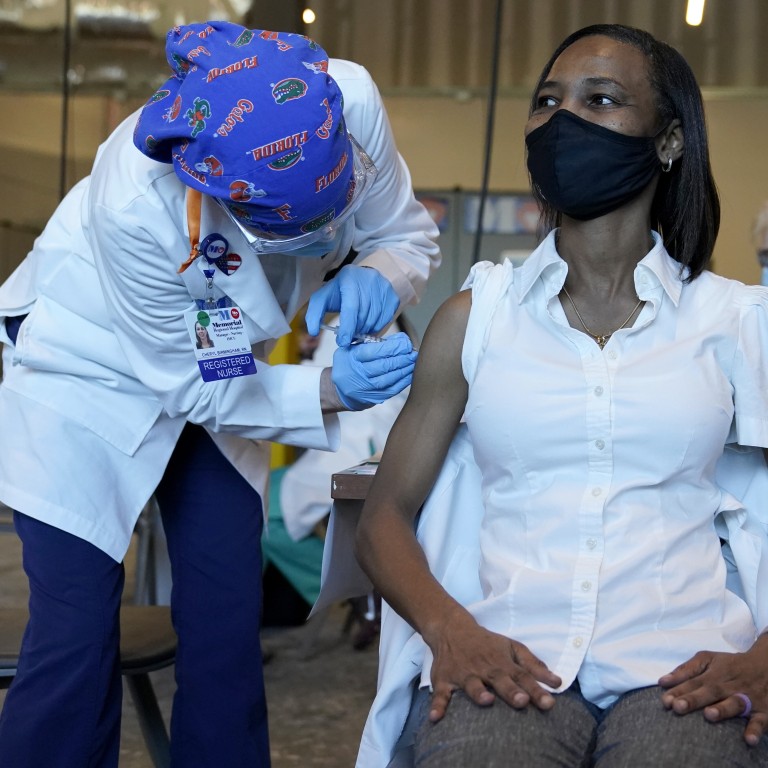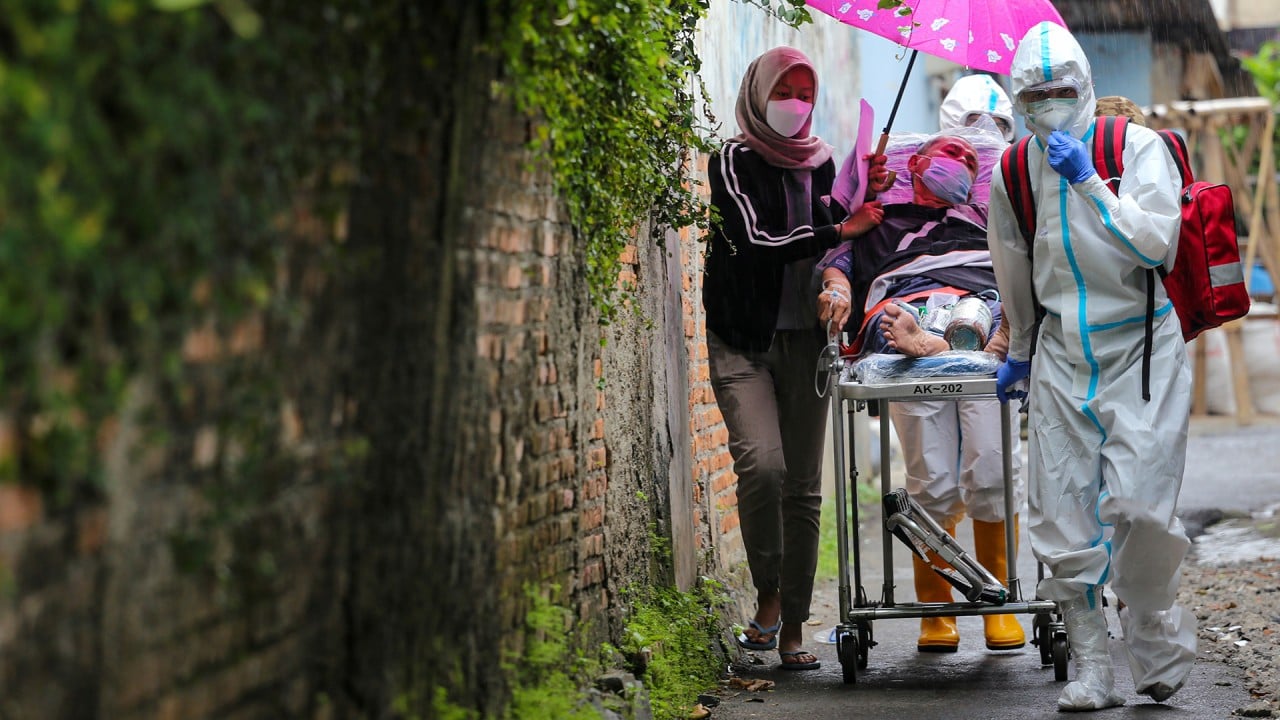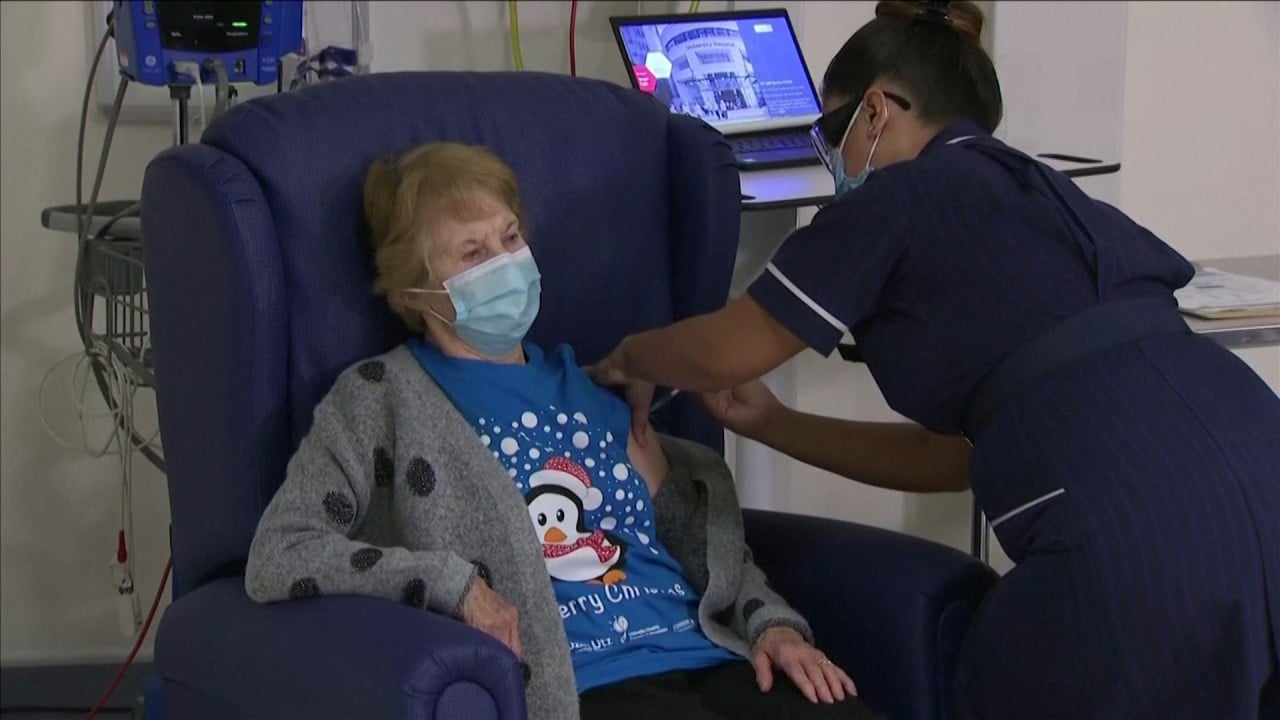
A fifth of the world’s population may have to wait more than a year to get Covid-19 vaccine
- Study finds that richer countries account for more than half the reservations placed with drug companies
- Researchers conclude than more than 1.5bn people will not get access to the drugs next year
At least a fifth of the world’s population will not have access to Covid-19 vaccines until 2022, according to a new analysis.
The study of pre-approval orders placed for drugs found that high-income countries, which comprise 14 per cent of the world’s population, have reserved half the 7.5 billion does from 13 leading vaccine developers.
The team from Johns Hopkins Bloomberg School of Public Health in the US found that low and middle income countries had placed orders with six manufacturers although they represent a much greater share of the world’s population.
The world is racing to produce safe and effective vaccines against the coronavirus which has infected more than 75 million people and killed 1.7 million.
US authorises second Covid-19 vaccine amid winter surge
Britain and the United States have started to inoculate their people, while European Union countries will roll out jabs from late December.
But the timeline could be unclear in other countries. “Even if all 13 of these vaccine manufacturers were to succeed in reaching their maximum production capacity, at least a fifth of the world’s population [over 1.5 billion people] would not have access to vaccines until 2022,” the researchers wrote.
The United States, the country worst-hit by Covid-19 with a fifth of all cases globally, has reserved 800 million doses. Japan, Australia, and Canada have pre-ordered more than one billion doses in total, although they only account for nearly 1 per cent of global Covid-19 cases.

03:58
Poor countries said to be left behind in Covid-19 vaccine race as rich nations get first doses
The research was published in The BMJ, the journal of the British Medical Association, on Tuesday, days before Covax, the global initiative for fair distribution of Covid-19 vaccines, announced that it has secured almost 2 billion doses of several “promising” vaccine candidates.
The 190 participating countries will have “access to doses in the first half of 2021, with first deliveries anticipated to begin in the first quarter of 2021,” according to the World Health Organization.
The scheme has already signed up vaccine developers including AstraZeneca and Johnson & Johnson, as well as the world’s largest manufacturer of vaccines by volume, the Serum Institute of India. Talks are continuing with other drug firms, including Moderna and Pfizer-BioNTech.
Vaccines for world’s vulnerable no guarantee of a ‘silver bullet’: WHO
Price and the temperature at which the vaccines must be stored are also a consideration. More than 40 per cent of pre-market commitments from high-income countries involved the vaccine developed by Oxford University and AstraZeneca, which can be kept in a fridge and is the cheapest available.
The UK-made vaccine costs US$8 per course for countries such as the US, Britain, Brazil and China, and US$6 per course for doses produced by the Serum Institute of India, which are destined for low and middle-income countries.

01:55
Coronavirus vaccine: UK grandmother is first person outside trials to get Pfizer Covid-19 shot
The vaccines use advanced genetic techniques and have an efficacy rate of over 90 per cent, but they are much more expensive than the Oxford drug and need to be stored in ultracold temperatures.
The BioNTech-Pfizer vaccine is priced at US$39 per course and Moderna’s at US$64 to US$74 per course.

